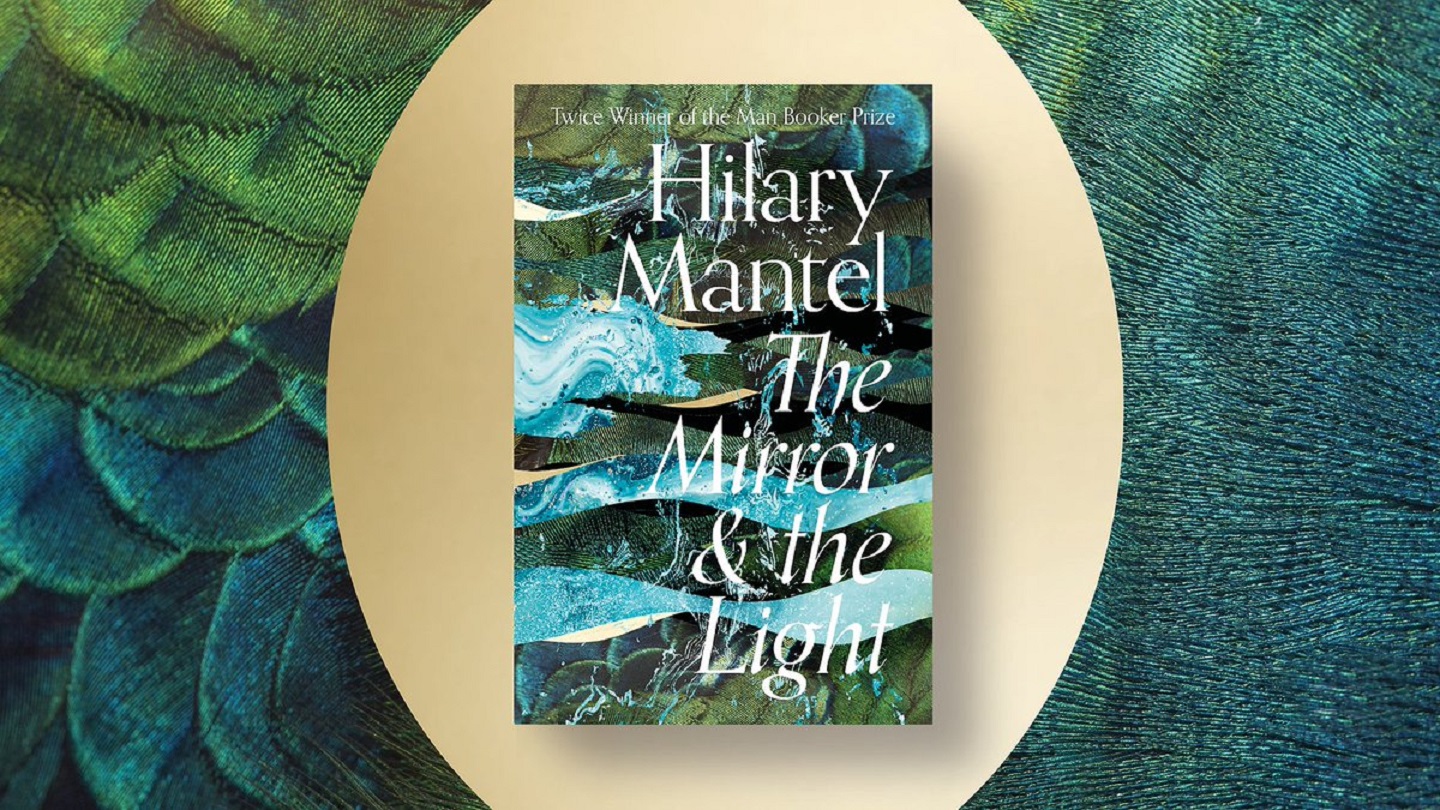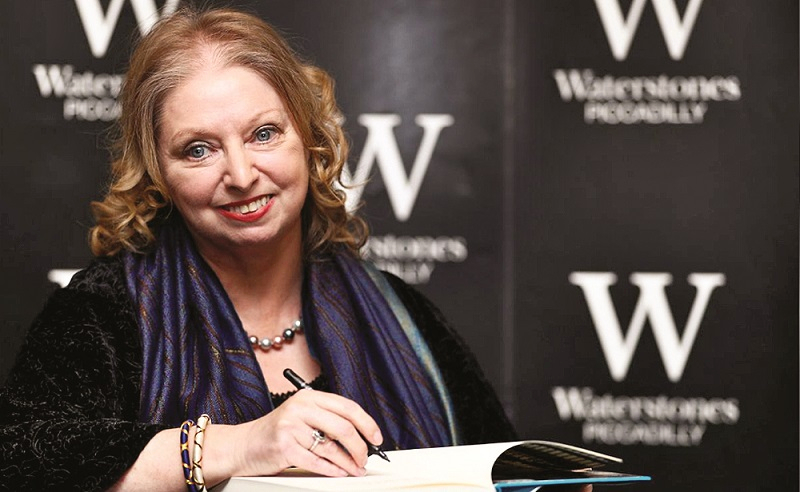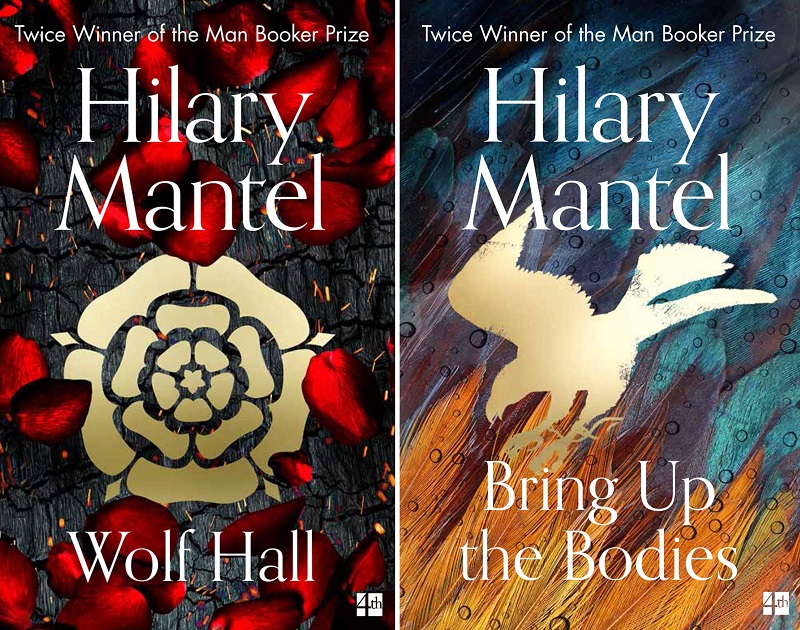
The last book looks into the last four years of Thomas Cromwell's life (Photo: 4th Estate)
If you flip to the final pages of The Mirror & the Light to follow Thomas Cromwell to the scaffold, then start from the first of its 754 pages and inch towards it again, it will not dilute Hilary Mantel’s intense portrayal of the last four years of his life. Readers who have waited eight years for the conclusion of her Wolf Hall trilogy already know what awaits him. But how did the man who almost had it all end up in the Tower of London?
The book opens in May 1536 with Anne Boleyn’s severed head on the ground, following adultery charges trumped up by Cromwell to appease the Tudor king displeased with his queen. Nothing misses the chief minister’s quick small eyes, from the spectators jostling for a better view and blood seeping between the planks to how the women who attended to Anne in her last moments slide in the gore and stoop over the narrow carcass.
Cromwell sees Anne looking over her shoulder, as if hoping for a last-gasp pardon, and a courtier — her cousin, who is also cousin to the incoming queen — slipping away to tell Henry she is dead. He fingers the Calais executioner’s sword wrought from Toledo steel and reads the words engraved on it — Speculum Justitiae or mirror of justice — which remind him of his affinity with iron and how far he, the son of a drunken, abusive blacksmith, has come from Putney’s cobbled streets.
England is a happy place and Cromwell, who works from dawn to dusk, thrives, filling the state’s coffers and accruing benefits from different quarters to secure his own future. He boasts: “From now on, it is not your noble and ancient blood that will place you in the hierarchy. It is what job you do for the king.”
hilary_mantel_2.jpg

Reports of uprisings in the northern states require attention and the need to appease nobles unbalances the ledgers, but these are all in a day’s work for a man whose “field of interest is very wide” and knows full well that “the times being what they are, a man may enter the gate as your friend and change sides while he crosses the courtyard”.
Cromwell has found favour with Henry through clever manipulation and purposeful interest in all matters pertaining to the ruler, particularly his creature comforts and choice of queens. In the preceding novels, Wolf Hall (2009) and Bring Up the Bodies (2012) — both Booker Prize winners — Cromwell brokers the annulment of the king’s marriage to Katherine of Aragon, then subsequent marriage to Boleyn. Jane Seymour is bride-in-waiting as the latter breathes her last.
When Jane dies after childbirth, Anna of Cleves steps in — more a political pact between England and Germany to further Henry’s quest to break free of the Pope and the Roman Catholic Church and head a new Protestant country, than a matrimonial alliance. That manoeuvre misfires when Anna flinches from Henry at first sight — his portrait does not prepare her for an ageing monarch with a girth bloated by inactivity and fatigue.
The feelings are mutual; Henry complains about the German princess’ plain looks to Cromwell and from there, begins to find fault with him. Vain and fond of outlandish attire that makes him look more foolish than regal, increasingly erratic with wilful demands and having an ear bent towards rumour and gossip, Henry finally gives the nod to have him — since promoted to Lord Privy Seal and the Earl of Sussex — charged with treason and heresy in 1540. He soon regrets the execution of “the most faithful servant he had ever had”, but loses little time turning his focus to his fifth wife Katherine Howard, Anna’s maid of honour, after they part ways.
hilary_mantel_books.jpg

Court scandals, lies and shenanigans colour the pages of The Mirror & the Light which, like its predecessors, is told in the first person by Cromwell. With eye and mind on constant alert, he observes, mulls and comments, addressing an endless entourage of aristocrats, diplomats, courtiers, politicians, clergymen, ladies-in-waiting, servants and members of Henry’s household as well as his own. Every now and then, he voices an aside or steps outside of himself and turns third-party narrator.
Mantel stops you in mid-breath with the brevity and clarity of her sentences and you reread them to savour the attire, food, surrounds and daily goings-on in England of Cromwell’s day. Her brilliant prose adds texture to the mundane and makes the past intimate and immediate as we get swept along to fates that await characters who have no clue. She is not always easy to read but once you get the hang of her approach, you are rewarded with insights and meanings gathered from words that weigh as much as Henry’s jewels.
The cast of characters is huge and those with no inkling of English history, on which the trilogy is based, will have a hard time connecting who with whom and what. A list following the Contents page helps, but obscure ties and illegitimate offspring who pop up every now and then complicate the already convoluted story, in which everyone seems to be out to further his/her own interests.
Mantel’s story has five invented characters, the latest being Jenneke, the daughter Cromwell did not know he had from a long-ago tryst. The lass turns up and commands a few rambling pages, then disappears as quietly as she comes. But the crafty statesman enlists women willing to spy and gather incriminating information on who is doing what with whom, and how two of their kind in particular – staunch Catholic Mary and Elizabeth, Henry’s daughters by Katherine of Aragon and Anne, respectively, both excluded from succession after his marriages are declared invalid – figure in the king’s plans.
Ghosts also make their appearance, from Boleyn and her supposed lovers to a woman he saw burnt to death as a boy, a bully he dealt a lethal blow to, his father Walter and his mentor cardinal Thomas Wolsey, also a victim of Henry’s caprice. Walter surfaces whenever Cromwell ruminates — he does that often, which bogs the pace of the plot and wearies the reader — the way a man who cannot believe his good fortune retraces his steps and repeats himself, as if to remind others, look at me.
Royal favour gets to his head, however, and he begins to see himself deserving more and more, and time and again, we catch him hankering for what he deems his due. After all, he is “the second man of the realm”, who could become regent should the king suddenly die. Rebutting talk that he no longer kneels before Henry, he says: “I have too much business with him ... He knows not to cripple me.”
But a path staked out by ambition and insatiable greed — Cromwell is ruthless in dispensing those in his way — and hobbled with intrigue and deceit is as tenuous as the benevolence of a fickle king who is desperate for a son and is wont to fault the matchmaker. Finally, like those he sent to the gallows who had no recourse to justice, Cromwell’s defence — “my faith is as that professed by the king” — is feeble because he knows Henry has the last word.
How Boleyn meets her end mirror’s Cromwell’s fate four years later, the difference being that he gets the axe instead of the sword. History books say he was spared being hung, drawn and quartered but suffered several strokes at the hands of an inexperienced executioner.
There is no gore but Mantel grips our imagination with the cold that makes Cromwell shudder. After luring us into the mind and heart of a man who got up from the gutter and made something of his life before falling from grace, she leads him away with his head held high. And we who have kept close company with this flawed human being are sad to see him go.
“He eases himself down to die. He thinks, others can do it and so can I … The pain is acute, a raw stinging, a ripping, a throb. He can taste his death: slow, metallic, not yet come … He is far from England now … He feels for an opening, blinded, looking for a door: tracking the light along the wall.”
Aside from mirrors that reflect multiple images and what Henry wishes to see, the title of this volume references the light associated with his presence. Cromwell polishes his ego, saying, “Your Majesty is the only prince. The mirror and the light of other kings.”
But light is fleeting and no one can pin it down, as those who attempt to please difficult masters soon find out. “If Henry is the mirror, he is the pale actor who sheds no lustre of his own, but spins in a reflected light. If the light moves he is gone.”
Love him or not, this is one thing you learn from the poor Putney boy who reached unimaginable heights.
This article first appeared on May 11, 2020 in The Edge Malaysia.


